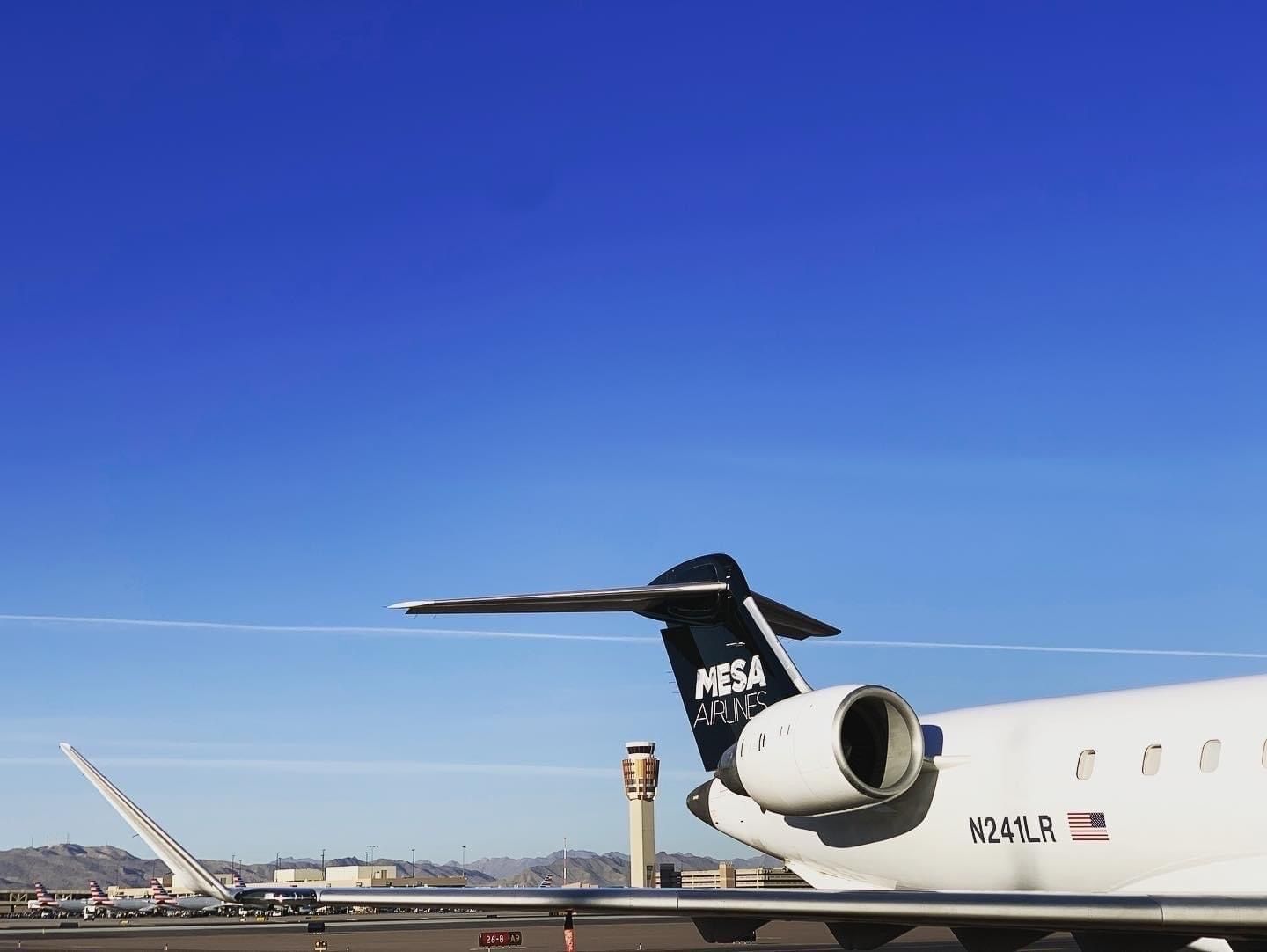Phoenix-based regional airline Mesa Airlines reported its 2023 fiscal first-quarter earnings and operating results on Thursday. The carrier saw operating revenues amount to more than $140 million, a slight decrease from earnings during the same period in 2022.
The results come as the airline is set to begin transitioning its Bombardier CRJ900s to United Airlines due to the termination of its contract with American Airlines. Mesa also reportedly acquired eight CRJ550 regional aircraft to fly under the United Express brand.
Inside the numbers
According to the report, here is a breakdown of the airline’s results.
- Total operating revenues in Q1 2023 was $147.2 million, a decrease from $147.8 million for Q1 2022.
- Per GAAP, the recognition of $5.3 million versus $4.2 million of previously deferred revenue in Q1 2022. The remaining deferred revenue balance of $18.8 million will be recognized as flights are completed over the remaining terms of the contracts.
- A net loss of $9.1 million, or $(0.25) per diluted share, compared to a net loss of $14.3 million, or $(0.40) per diluted share for Q1 2022.
- Adjusted net loss was $4.3 million, or $(0.12) per diluted share, versus an adjusted net loss of $9.3 million, or $(0.26) per diluted share, in Q1 2022.
- The year-over-year increase in adjusted net income of $5.0 million was primarily due to increased block-hour revenue for new pilot pay scales and lower maintenance, D&A, and aircraft rent expenses, partially offset by higher expenses for flight operations due to increased costs for training and employee wages.
Get the latest aviation news straight to your inbox: Sign up for our newsletters today.
Restoring capacity
The carrier’s Chairman and CEO, Jonathan Ornstein, spoke about Mesa’s first-quarter performance.
“The first quarter was an important one for Mesa, as we executed several key agreements that will materially enhance our operational and financial position and alleviate significant issues that we have faced. While block hour production continued to be challenged by the industry-wide pilot shortage during the quarter, we believe all the pieces are in place to begin restoring capacity across our fleets. We are preparing for the transition of our CRJ-900 operation to United next month. Our pilot pipeline continues to strengthen and pilot attrition has remained significantly lower since we have enhanced our payscales and expanded our participation in the Aviate program with United.” - Jonathan Ornstein, Mesa Airlines Chairman & CEO
In addition to Aviate, Mesa has also committed to investing in the next generation of pilots with a direct-entry captain training program with United. On completion of training, new pilots will receive a sign-on bonus of $110,000. The program comes soon after United Airlines took a 10% stake in the parent company of Mesa Airlines, Mesa Air Group, at a value of $10.5 million.
Controllable completion factors
As the airline operates for two regional brands, Mesa had a completion factor near 100%. According to the report, the carrier ran a controllable completion factor of 99.4% for American and 99.9% for United during Q1 2023. During the same period last year, Mesa reported a controllable completion factor of 97.7% for American and 98.3% for United, excluding cancellations due to weather and air traffic control.
Including cancellations, Mesa said it reported a total completion factor of 97.9% for American and 99.2% for United during Q1 2023, compared to a total completion factor of 95.8% for American and 95.8% for United during Q1 2022.
Mesa Airlines had $701.3 million in total debt secured primarily with aircraft and engines as of December 31, 2022. This amount reportedly includes $64.2 million, corresponding to the reclassification from the operating lease to finance a lease on 15 CRJ-900s.



